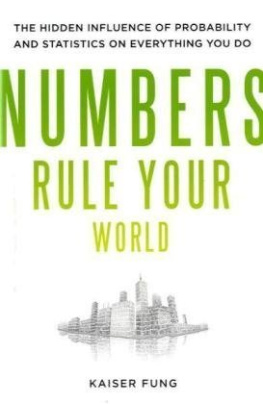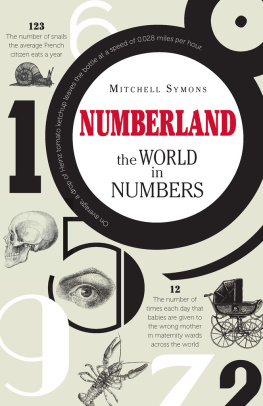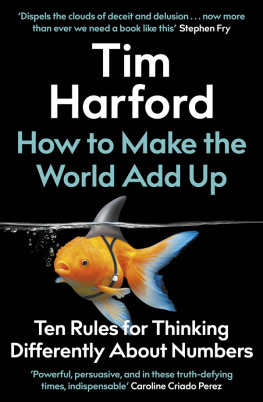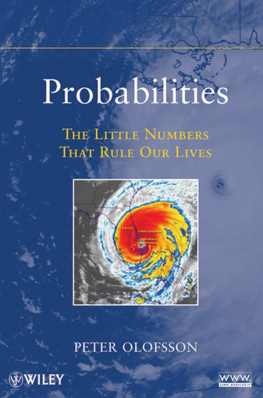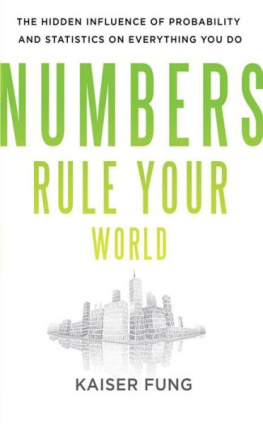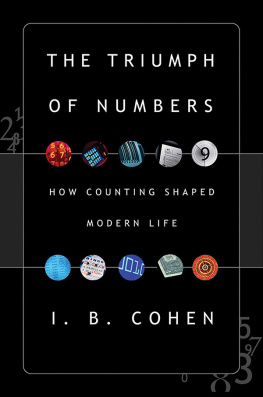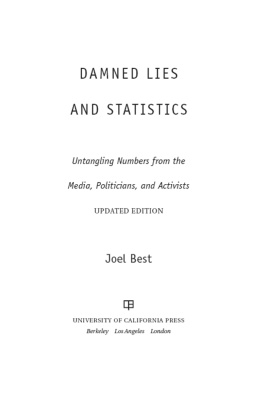Kaiser Fung - Numbers Rule Your World: The Hidden Influence of Probabilities and Statistics on Everything You Do
Here you can read online Kaiser Fung - Numbers Rule Your World: The Hidden Influence of Probabilities and Statistics on Everything You Do full text of the book (entire story) in english for free. Download pdf and epub, get meaning, cover and reviews about this ebook. City: New York, USA, year: 2010, publisher: McGraw-Hill Professional Publishing, genre: Romance novel. Description of the work, (preface) as well as reviews are available. Best literature library LitArk.com created for fans of good reading and offers a wide selection of genres:
Romance novel
Science fiction
Adventure
Detective
Science
History
Home and family
Prose
Art
Politics
Computer
Non-fiction
Religion
Business
Children
Humor
Choose a favorite category and find really read worthwhile books. Enjoy immersion in the world of imagination, feel the emotions of the characters or learn something new for yourself, make an fascinating discovery.
- Book:Numbers Rule Your World: The Hidden Influence of Probabilities and Statistics on Everything You Do
- Author:
- Publisher:McGraw-Hill Professional Publishing
- Genre:
- Year:2010
- City:New York, USA
- Rating:3 / 5
- Favourites:Add to favourites
- Your mark:
Numbers Rule Your World: The Hidden Influence of Probabilities and Statistics on Everything You Do: summary, description and annotation
We offer to read an annotation, description, summary or preface (depends on what the author of the book "Numbers Rule Your World: The Hidden Influence of Probabilities and Statistics on Everything You Do" wrote himself). If you haven't found the necessary information about the book — write in the comments, we will try to find it.
WHAT ARE THE ODDS YOULL WIN THE LOTTERY?
How long will your kids wait in line at Disney World?
Who decides that standardized tests are fair?
Why do highway engineers build slow-moving ramps?
What does it mean, statistically, to be an Average Joe?
NUMBERS RULE YOUR WORLD
In the popular tradition of eye-opening bestsellers like Freakonomics, The Tipping Point, and Super Crunchers, this fascinating book from renowned statistician and blogger Kaiser Fung takes you inside the hidden world of facts and figures that affect you every day, in every way.
These are the statistics that rule your life, your job, your commute, your vacation, your food, your health, your money, and your success. This is how engineers calculate your quality of living, how corporations determine your needs, and how politicians estimate your opinions. These are the numbers you never think about-even though they play a crucial role in every single aspect of your life.
What you learn may surprise you, amuse you, or even enrage you. But theres one thing you wont be able to deny: Numbers Rule Your World
An easy read with a big benefit.
Fareed Zakaria, CNN
For those who have anxiety about how organization data-mining is impacting their world, Kaiser Fung pulls back the curtain to reveal the good and the bad of predictive analytics.
Ian Ayres,Yale professor and author of Super Crunchers: Why Thinking By Numbers is the New Way to Be Smart
A book that engages us with stories that a journalist would write, the compelling stories behind the stories as illuminated by the numbers, and the dynamics that the numbers reveal.
John Sall, Executive Vice President, SAS Institute
Little did I suspect, when I picked up Kaiser Fungs book, that I would become so entranced by it - an illuminating and accessible exploration of the power of statistical analysis for those of us who have no prior training in a field that he explores so ably.
Peter Clarke, author of * Keynes: The Rise, Fall, and Return of the 20th Centurys Most Influential Economist*
A tremendous book. . . . If you want to understand how to use statistics, how to think with numbers and yet to do this without getting lost in equations, if youve been looking for the book to unlock the door to logical thinking about problems, well, you will be pleased to know that you are holding that book in your hands.
Daniel Finkelstein, Executive Editor, The Times of London
I thoroughly enjoyed this accessible book and enthusiastically recommend it to anyone looking to understand and appreciate the role of statistics and data analysis in solving problems and in creating a better world.
Michael Sherman, Texas A&M University, American Statistician
**
Kaiser Fung: author's other books
Who wrote Numbers Rule Your World: The Hidden Influence of Probabilities and Statistics on Everything You Do? Find out the surname, the name of the author of the book and a list of all author's works by series.

